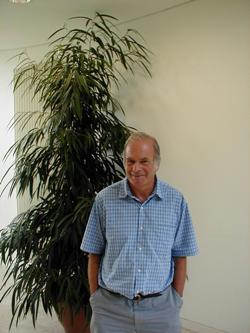
President Bryan Lovell concludes that while opinion should be hot, strong and freely available in the Society, facts remain golden.
Geoscientist 20.7 July 2010
You can’t argue with a rock, but you can certainly argue with a geologist: we do spend a fair amount of time in cheerful dispute. These arguments are particularly effective when we are standing in front of rocks in the fresh air. When we cannot agree subsequently, we go back and look at the rocks again. So an incoming President may reasonably call for a lot of argument within the Society, and may act accordingly.
At the kind invitation of my predecessor, Lynne Frostick, I’ve already presented one suitably disputatious topic in a lecture at Burlington House last November. Geology is central to my conviction that our current concerns about human-induced climate change are highly plausible. The evidence from the geological record suggests that when a thousand or so gigatonnes of carbon are released rapidly to Earth’s atmosphere, as we are now doing, certain things happen on this planet. These include a rise in global temperature, a rise in global sea level, acidification of the oceans and notable extinction of life.
The Society is hosting a meeting to consider these carbon excursions this November (see the article by Jonathan Cowie in May’s Geoscientist). This joint meeting with the British Ecological Society will concentrate on the latest science, discussion of which will be deliberately separated from any consideration of economic, political and social implications. That is not because we consider these matters are unimportant, it is simply that we are geologists, not economists, politicians or sociologists. (Some of us may aspire to be one or more of those characters, but that is not why we are FGS and CGeol)
A second line of argument in my talk last November was that the oil industry could be paid twice, once for pumping all that mighty handy carbon out of the ground, and again for putting it back when we’ve had the use of it. The technical feasibility of storage of carbon dioxide in rocks is to be considered in a series of scientific meetings to be run jointly by our Society and the American Association of Petroleum Geologists, beginning with a meeting at Burlington House later next year. Once again, there will be a clear separation of scientific discussion from consideration of the significant social issues involved in the application of that science.
In this month’s JGS I set out another topic on which I’d like to argue with you as I lumber around on my Presidential duties over the next couple of years. I am claiming that recent research at Bullard Laboratories helps us to answer a question of long standing: what controls high-frequency changes in regional sea-level in non-glacial times? (Putative answer: hot blobs in mantle convection.)
Together with much more science, and its application, there is the prospect of further nourishment for body, mind and soul. It is high time that the geology of beer, historically a major fuel for our Fellows in the field, is given a prominence in our affairs comparable to that deservedly enjoyed by Dick Selley’s masterly work on the geology of wine. I am also looking for the best geological poetry, original or otherwise, to be judged by literary celebrities at an evening of high culture at Burlington House - with appropriate refreshment!